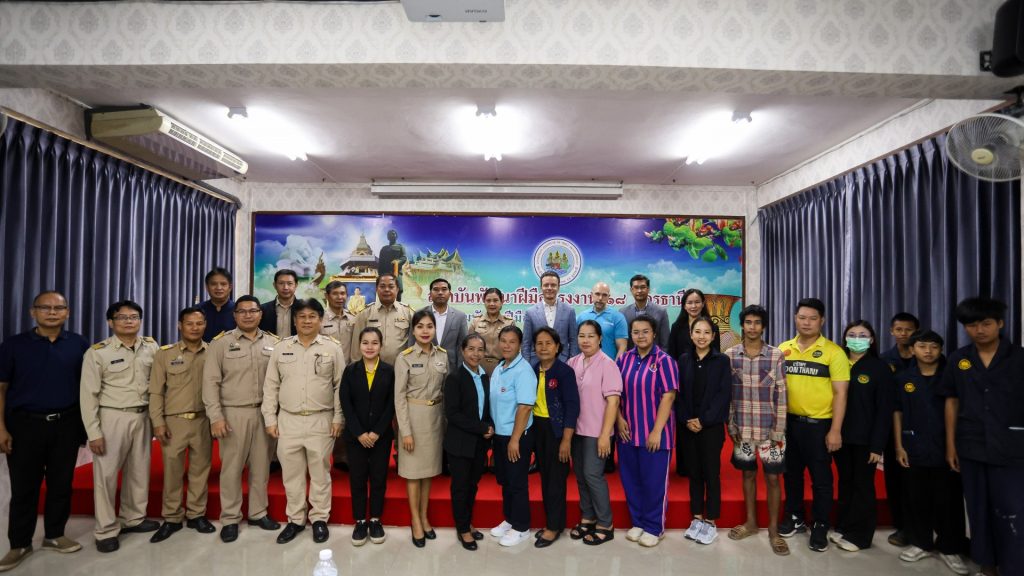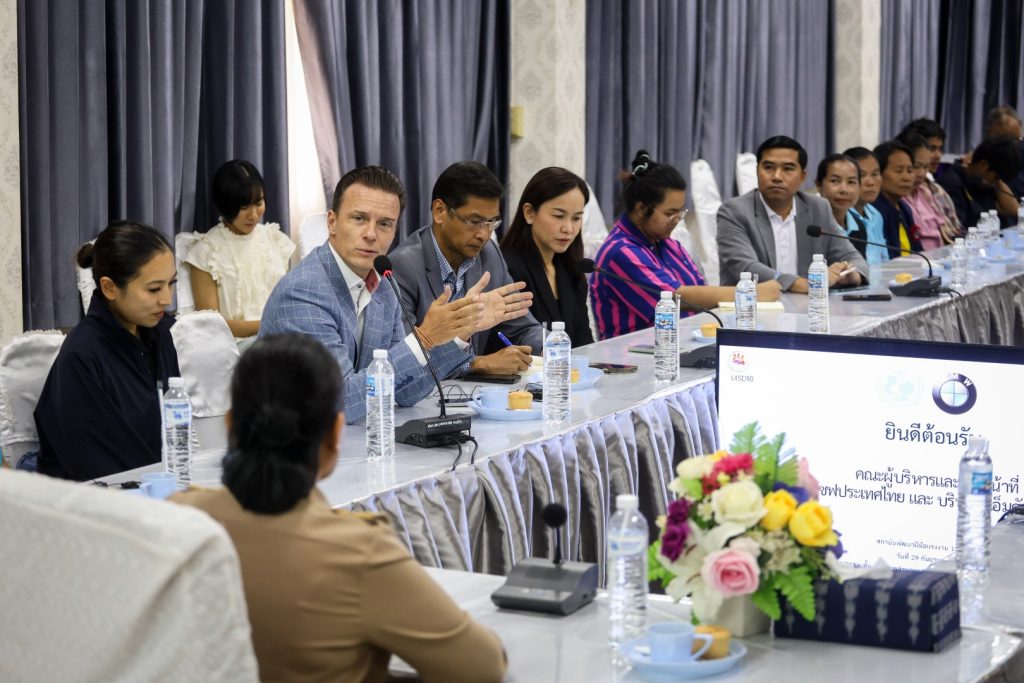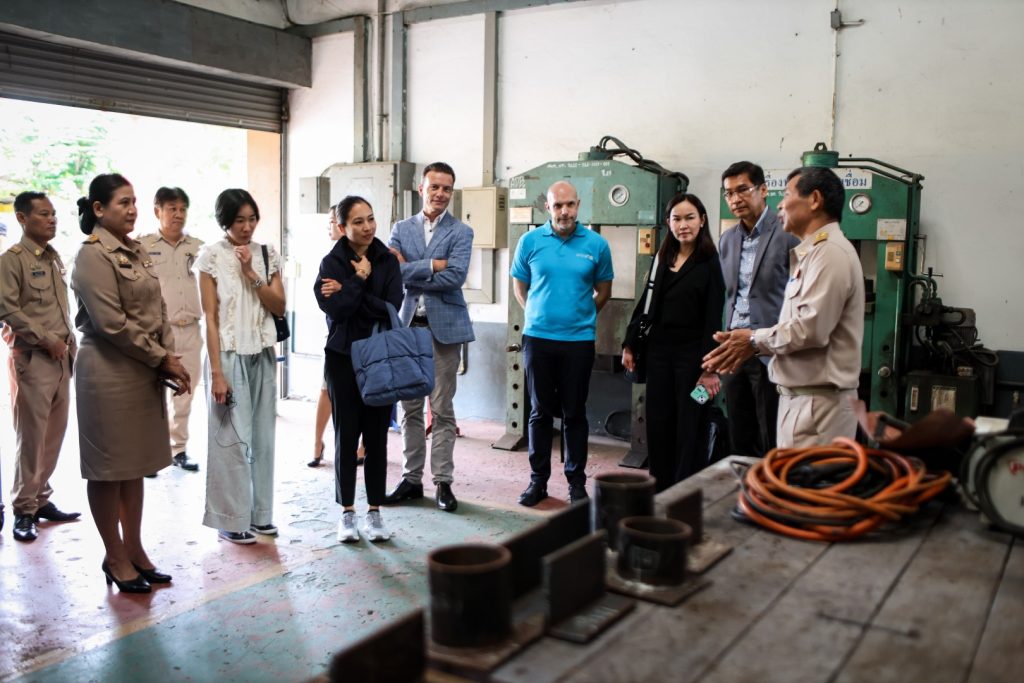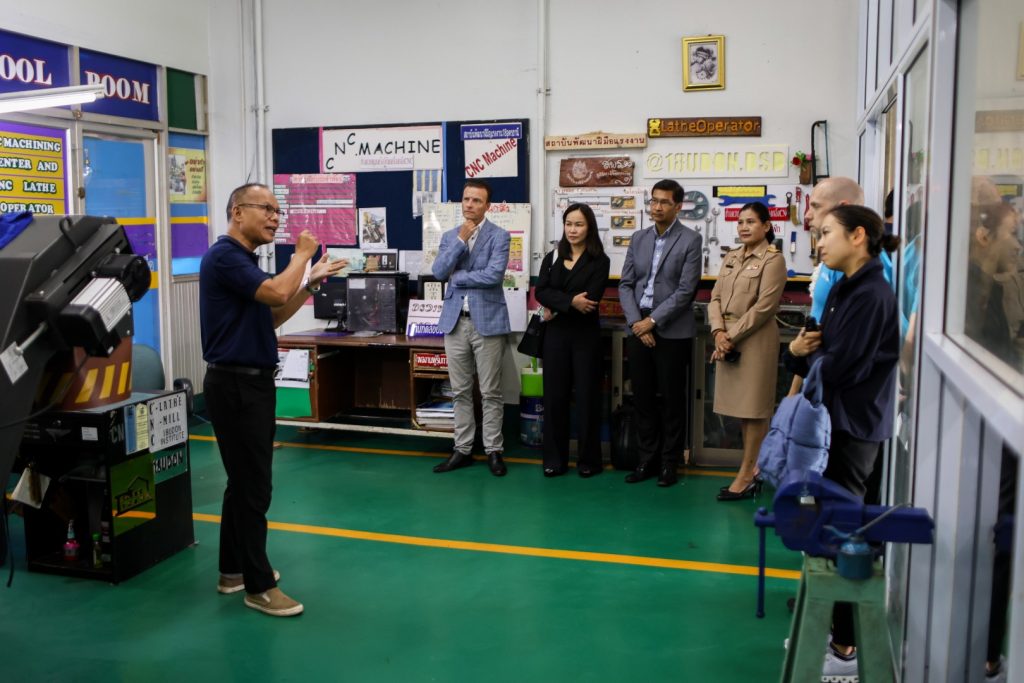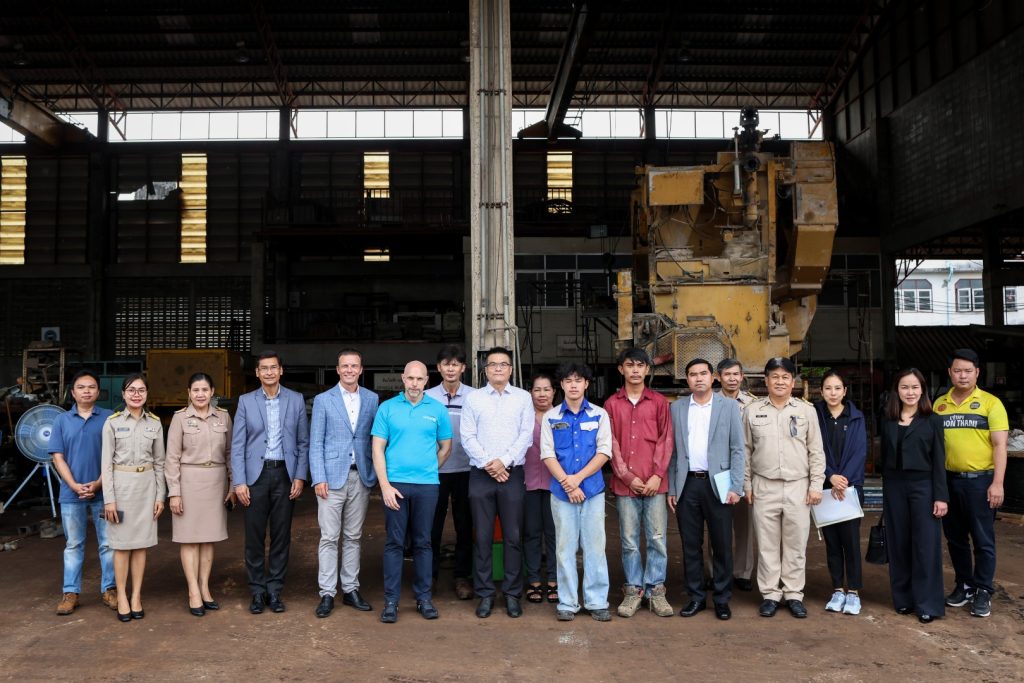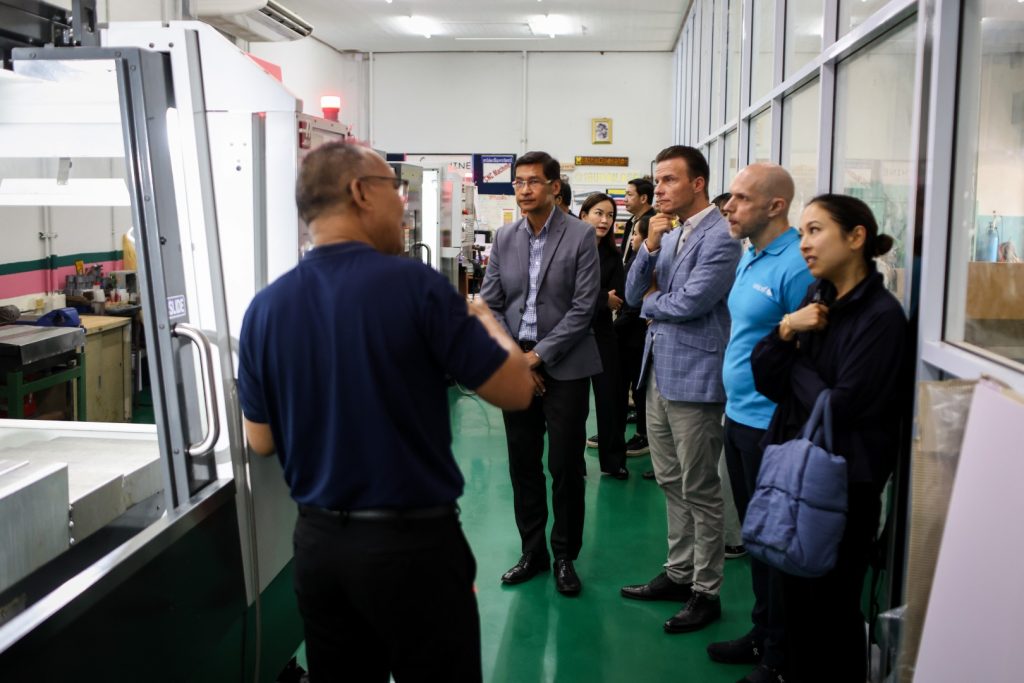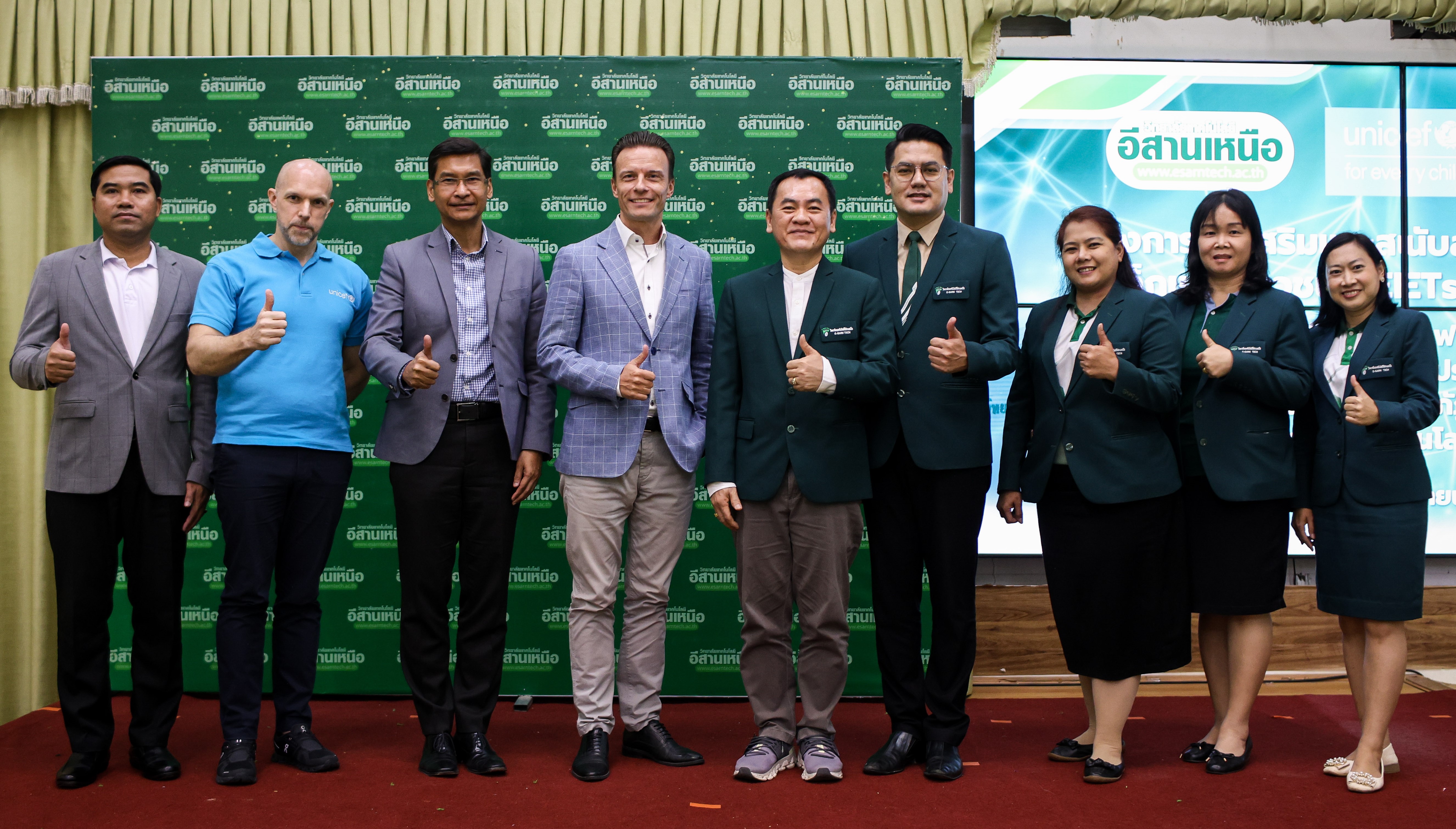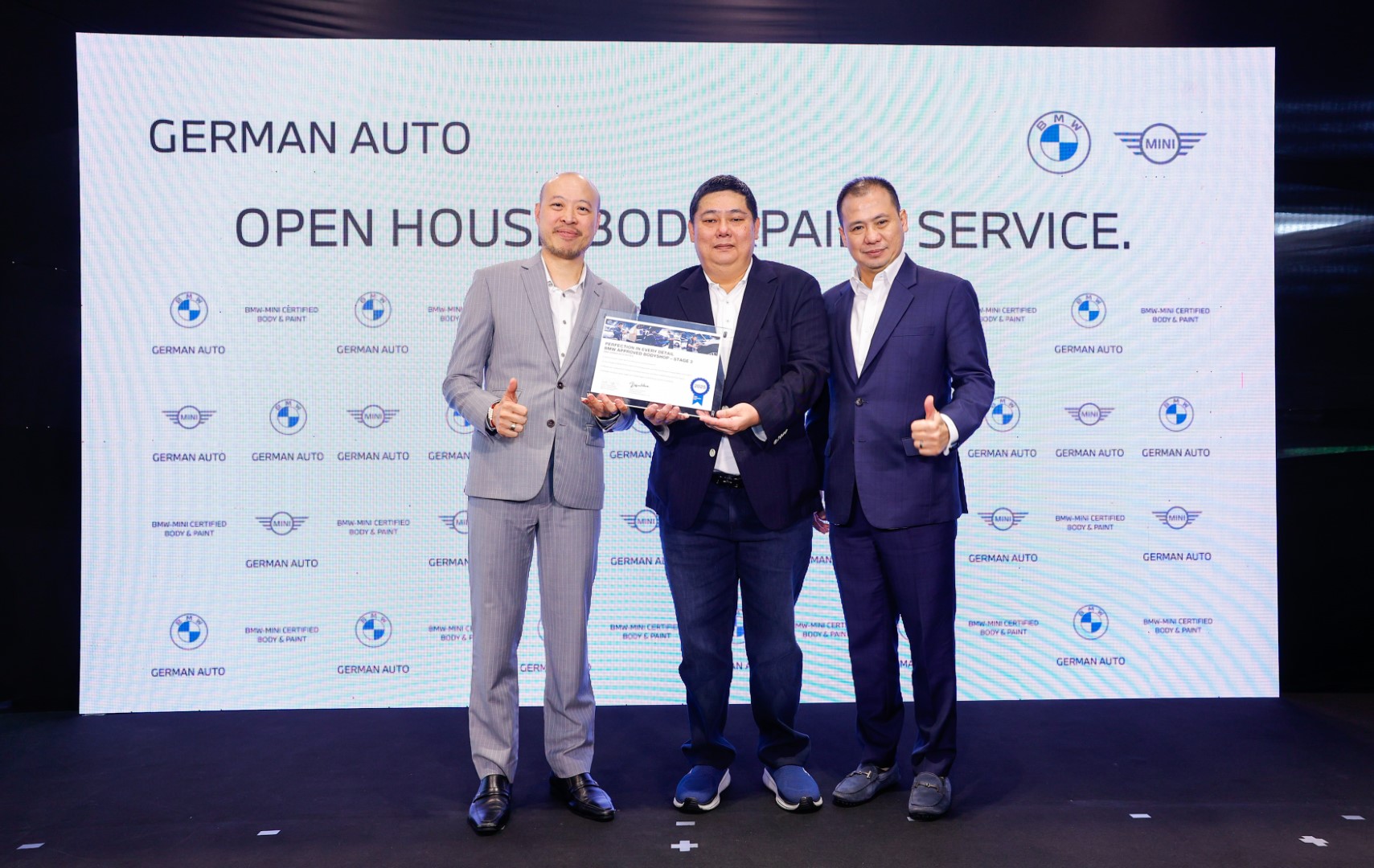Udon Thani. BMW Group Thailand and UNICEF are reinforcing their joint commitment to empower vulnerable youth in Thailand with a joint field visit to Udon Thani Province. There, they witnessed the success of an innovative pilot programme aimed at reintegrating youth who are Not in Education, Employment, or Training (NEET). The programme – piloted in five provinces with support from the National Economic and Social Development Council (NESDC) and the Ministry of Labour (MoL) – provides pathways for vulnerable youth to learn valuable skills, gain employment, and strengthen Thailand’s workforce.
Together, UNICEF and the BMW Group run a programme called “BRIDGE. Educating Young People for Tomorrow Today”, operating in five countries with BMW Group production locations. BRIDGE provides children and young people with key skills in STEM subjects (science, technology, engineering and maths) to prepare them for the future working life. As part of a long-term commitment, the BMW Group supports UNICEF’s global goal of providing quality education to children and young people worldwide. In Thailand, the initiative focuses on delivering training in STEM education and skills development to around 1,400 youth in five pilot provinces (Udon Thani, Pattani, Yala, Narathiwat, and Songkhla) over the course of two years. With an estimated 1.2 million young people across Thailand currently classified as NEET, UNICEF is working closely with the Royal Thai Government to scale up the pilot programme and achieve nationwide impact in alignment with the 13th National Economic and Social Development Plan, 20-Year National Strategy, and Thailand’s priorities in human capital development.
“The success of this pilot programme in reintegrating 1,400 youth is a testament to the power of strong partnerships and innovative approaches,” said Severine Leonardi, Deputy Representative for UNICEF Thailand. “With the support of BMW Group Thailand, we are not only providing vital pathways for vulnerable youth to gain skills and employment but also strengthening Thailand’s future workforce and contributing to the nation’s human capital development goals. We are committed to working with the Royal Thai Government to scale these proven solutions nationwide.”
During a field visit to Udon Thani’s Na Phu subdistrict, the first pilot site, BMW Group Thailand President and CEO Mr. Rene Gerhard said, “Our partnership with UNICEF is rooted in a shared belief in the future of Thailand. As part of Thailand’s strong automotive and manufacturing sectors, we recognize the fact that a skilled, dynamic workforce is key to a prosperous economy. By nurturing local talent who otherwise might not have the opportunity to grow and participate in this workforce, we can make individual lives better while also bolstering the future of our industry and Thailand as a nation.”
The programme, which is adapted from the European Union’s Reinforced Youth Guarantee initiative, involves a four-step process: identifying NEET youth and available local support services, building trust with NEET youth and their families, offering tailored mentoring and support, and finally connecting them to educational, training or career opportunities. The support model piloted in Na Phu subdistrict successfully reintegrated 92% of out-of-school youth – earning the subdistrict the Prime Minister’s Office First Prize for Innovation in Governance in 2024.
During the visit, the UNICEF and BMW Group Thailand delegation observed courses conducted by the Skill Development Institute under supervision by the Department of Skill Development in the Ministry of Labour. This was followed by discussions on further reintegration and support for vulnerable learners at the E-Sarn Technological College. The group also visited youth beneficiaries from the programme at the premises of construction company Thai Wat Engineering Co., Ltd., meeting and interacting with programme participants who have now secured jobs with their newfound skills.
Additional photos
